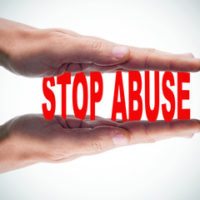SEXUAL ABUSE – TEACHING THE RIGHT AND WRONG LESSONS TO OUR CHILDREN

Terri Miller of SESAME (Stop Educator Sexual Abuse, Misconduct, and Exploitation) said it right when she spoke about teachers: “This is a position of trust, and every precaution should be taken when you are placing people in authority over children.” Since our personal injury work at Ramey & Hailey Law includes helping victims of sexual assault and abuse, I’m used to hearing stories about “inappropriate relationships” of all kinds, but find it particularly tragic when teachers are involved in relationships with their students.
A new law in Indiana (effective this calendar year) requires teachers to teach children in pre-kindergarten through the 12th grade how to protect themselves against sexual abuse. In addition to Reading, (w)Riting, and (a)Rithmetic, students are taught to:
- Recognize (Is it safe? What’s the rule?)
- Report (tell an adult)
- Refuse (say words that mean no)
Is this really necessary, parents might ask. Yes! Covering the state of Indiana alone and only the year 2018, we found a large number of headline stories involving sexual abuse by educators. Here are just a few:
- “Indianapolis Public Schools employee accused of sexual misconduct involving a student”
- “Peru middle school teacher arrested, accused of having sex with student he met on Snapchat”
- “Indiana Teacher Reaches Plea Deal in Child Molesting Case”
- “IMPD, DCS investigating Pike Township school employee accused of sexually assaulting student”
- “Former Indiana teacher accused of sexually abusing boys during after-school baseball lessons”
SESAME has compiled alarming statistics on the incidences of sexual abuse in schools nationwide, with 3.5 million students reporting that they have had physical sexual contact from a teacher or coach. This statistic increases to 4.5 million when other forms of sexual misconduct are taken into consideration, such as:
- being shown pornography
- being subjected to sexually explicit language
- being subjected to exhibitionism
The new law, Indiana House Bill 1079, in addition to mandating sexual abuse awareness programs for students, closes gaps in the criminal screening process for school employees, requiring that schools perform background checks on both applicants and current school employees. Still, the cases of abuse continue to surface.
“If a school employee has mistreated your child, the first thing you want to do is make sure the problem stops,” writes E.A. Gjelten in Lawyers.com. “After that, you may ask: Whom can I sue?”
Why would parents of a child abused by an educator want to file a civil suit of their own, against the school district? To win damages. To receive compensation to help pay for the costs of medical and psychological treatment for their abused child. “The tragedy of child sexual abuse takes financial toll, too,” HealthDay emphasizes. Elizabeth Letourneau, who directs the Moore Center for the Prevention of Child Sexual Abuse at Johns Hopkins Bloomberg School of Public Health, calculated that lifetime costs for victims range between $283,000 to over $1 million dollars. Child sexual abuse increases a young person’s long term risk for mental, physical and behavioral health issues.
But, in order to win damages for a teacher’s sexual harassment, a student must show that a school official:
- knew about the employee’s sexual harassment
- had the power to take corrective action
- did little or nothing about the misconduct:
What’s more, there is a complex – and time-sensitive – administrative complaint process that must be filed before filing a lawsuit with the court. Our work as personal injury attorneys in Indiana is focused on helping survivors navigate those complexities to get the financial help they need. We’re all about listening without judgment and then – taking action!




